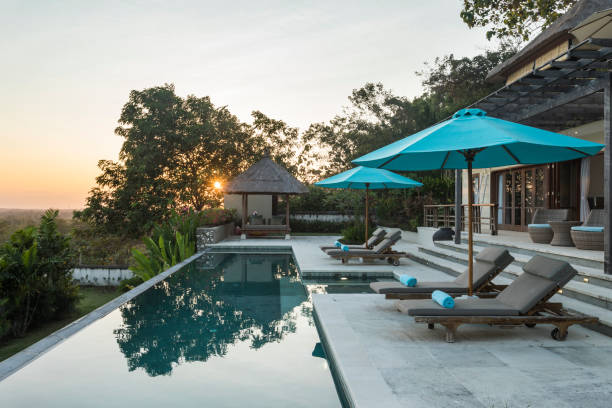Understanding Bali Building Regulations: Complete Legal Guide for Property Owners and Developers



Bali’s unique landscape, culture, and growing real estate market make it one of the most attractive destinations for property investment and construction in Indonesia. However, before starting any construction project—whether it’s a private villa, resort, or commercial space—it’s crucial to understand and comply with Bali’s building regulations.
At The Bali Lawyer, a trusted law service based in Bali, we provide comprehensive legal guidance on building regulations, zoning laws, and permit applications. Our team ensures your construction project meets all local government requirements, avoiding delays and legal complications.
This guide explains the essential regulations, permits, and processes involved in building in Bali, helping investors, developers, and property owners make informed and compliant decisions.
Why Bali Building Regulations Matter
Bali’s local government enforces strict building laws to protect its environment, cultural heritage, and public safety. Every construction project must comply with the Regional Spatial Planning (RTRW), which determines where and how different types of buildings can be constructed.
Failure to follow these regulations can result in:
Legal penalties or fines
Demolition orders
Delays in construction approval
Problems with future property sales or ownership transfers
By understanding the key requirements early, you can ensure your project proceeds smoothly and legally.
Key Elements of Bali Building Regulations
Building regulations in Bali involve several important components, including zoning rules, permits, environmental assessments, and architectural standards.
1. Zoning (Zonasi)
Before purchasing land or starting construction, you must verify the zoning classification of the property. Bali’s zoning map divides areas based on their designated use—residential, commercial, agricultural, or protected zones.
For instance:
Residential Zones (Perumahan) – for homes and private villas
Tourism Zones (Pariwisata) – for hotels, villas, or entertainment facilities
Commercial Zones (Perdagangan) – for offices, shops, and restaurants
Green Zones (Hijau) – protected agricultural or environmental areas where building is prohibited
At The Bali Lawyer, we assist in verifying land zoning before any purchase or construction, ensuring your investment is compliant from the start.
2. Building Permits (IMB / PBG)
Every building in Bali must have a legal permit before construction begins. Previously known as IMB (Izin Mendirikan Bangunan), this permit has now been replaced by PBG (Persetujuan Bangunan Gedung)—the Building Approval system under the latest regulations.
The PBG outlines:
The building’s function and purpose
Structural design and safety requirements
Compliance with local zoning and spatial plans
Adherence to environmental and cultural guidelines
Applying for a PBG involves submitting architectural drawings, land ownership documents, and structural calculations to the local government office.
Our legal team can manage the entire process on your behalf, from preparing documentation to obtaining final approval.
3. Land Ownership and Legal Rights
Foreigners cannot directly own freehold land in Bali. Instead, they can acquire property through legal agreements such as:
Hak Pakai (Right to Use)
Hak Sewa (Leasehold)
PT PMA (Foreign-Owned Company)
Each ownership type comes with specific rules regarding building permits and land use. Our lawyers at The Bali Lawyerensure your land acquisition and construction comply with both national and regional laws.
4. Environmental and Cultural Compliance
Bali is deeply rooted in cultural and environmental values. Therefore, all construction projects must align with local environmental and cultural preservation laws.
This may involve:
AMDAL (Environmental Impact Assessment) for large projects
Respecting traditional Balinese temple distances (Setback Rules)
Maintaining appropriate height and design to fit local aesthetics
Our legal team helps you navigate these cultural and environmental regulations to ensure your project receives smooth approval.
The Process of Getting a Building Permit in Bali
Obtaining a building permit involves multiple steps and coordination with local authorities. Below is an overview of the general process:
Land Zoning Verification – Confirm that the land is located in a zone where your intended construction is allowed.
Land Ownership Check – Ensure the land certificate is valid and matches the proposed construction purpose.
Architectural Plan Preparation – Submit design drawings that meet structural, aesthetic, and zoning standards.
Environmental Review – For larger developments, provide environmental impact reports.
Permit Application Submission – File your documents to the Dinas PUPR (Public Works and Housing Agency).
Inspection and Evaluation – Local authorities review your plans and may conduct site inspections.
Permit Issuance (PBG) – Once approved, you’ll receive the Building Approval required to start construction.
The Bali Lawyer can assist you through each stage, minimizing administrative delays and ensuring all documents meet local requirements.
Common Challenges with Bali Building Regulations
While Bali is welcoming to foreign investors and developers, navigating the building process can be complex. Common challenges include:
Misunderstanding zoning classifications
Purchasing land in restricted or green zones
Incomplete or inaccurate documentation
Confusion over ownership rights for foreigners
Language barriers with local authorities
These issues can lead to costly delays or legal disputes. Working with a legal team like The Bali Lawyer ensures all processes are handled correctly and efficiently, giving you peace of mind.
Understanding Spatial Planning (RTRW Bali)
The RTRW (Rencana Tata Ruang Wilayah) or Regional Spatial Plan of Bali is the foundation of all building regulations. It determines where construction is permitted and ensures sustainable development across the island.
The RTRW regulates:
Coastal protection areas
Temple and cultural preservation zones
Water source protection areas
Height restrictions near airports
Urban development zones
Before beginning any construction project, confirming your land’s classification under RTRW Bali is essential. Our experts at The Bali Lawyer can conduct due diligence and provide a full zoning compliance report.
Building Height and Setback Rules in Bali
To preserve the island’s traditional aesthetic and natural beauty, Bali enforces height and setback limitations for buildings.
Most buildings must not exceed 15 meters in height, respecting the local belief that no structure should be taller than the coconut trees or temple shrines.
Setback rules require specific distances between your building and nearby temples, rivers, or roads.
Violating these regulations can result in fines or demolition orders. With The Bali Lawyer, you can be confident your project fully complies with local standards.
Renovation and Extension Regulations
Even minor renovations or extensions require legal approval under Bali’s building laws. Whether you’re adding a swimming pool, expanding a villa, or changing building functions, these modifications must be reported and approved through a PBG update or amendment.
Our legal service helps property owners file the necessary documentation for renovation permits, ensuring compliance with Bali’s building and zoning laws.
Legal Compliance for Commercial and Hospitality Projects
If you’re developing a hotel, resort, or villa complex in Bali, additional regulations apply under tourism and business licensing laws. You’ll need to secure:
TDUP (Tourism Business License)
Environmental clearance
Operational permits from the local tourism board
The Bali Lawyer provides full legal assistance for commercial projects, ensuring all permits are obtained before operations begin.
Why Choose The Bali Lawyer
Building in Bali requires more than just architectural expertise—it requires a solid understanding of the legal framework that governs land use, construction, and ownership.
At The Bali Lawyer, we offer:
In-depth knowledge of Bali’s building and zoning laws
End-to-end permit assistance for residential and commercial projects
Due diligence reports for land purchases
Legal representation in case of disputes or violations
Consultation and compliance checks before and during construction
Our goal is to protect your investment and ensure your project proceeds legally, safely, and efficiently.
Build Legally and Confidently in Bali
Understanding Bali’s building regulations is essential for anyone planning to construct or develop property on the island. From zoning verification and building approvals to environmental compliance, each step requires careful attention and legal precision.
With The Bali Lawyer, you have a trusted legal partner who ensures your project meets every requirement, allowing you to focus on realizing your vision while we handle the legal complexities.
Contact The Bali Lawyer today for expert guidance on Bali building regulations, construction permits, and land compliance services. Build smart, build safe, and build legally in Bali.
